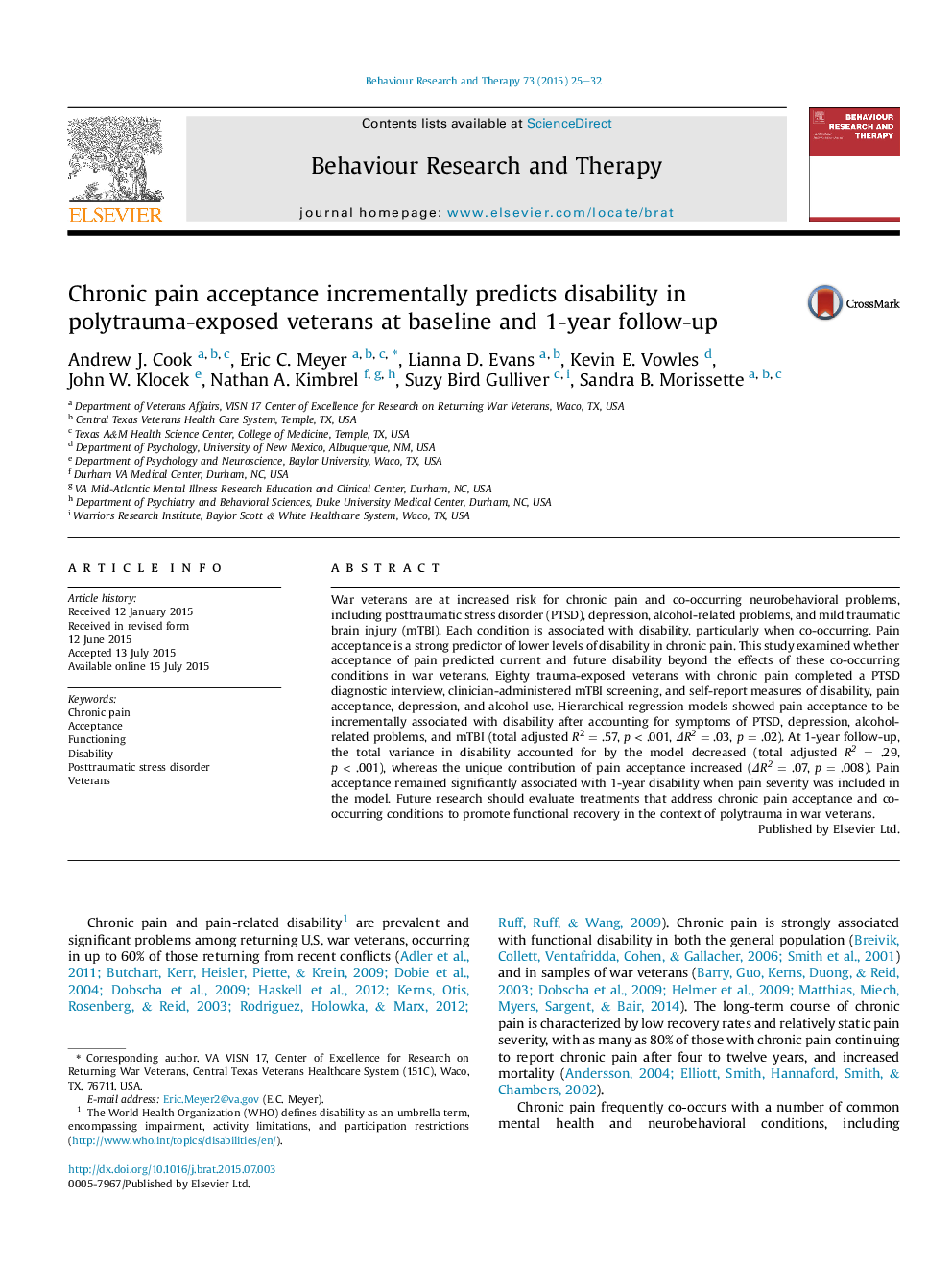| Article ID | Journal | Published Year | Pages | File Type |
|---|---|---|---|---|
| 7262231 | Behaviour Research and Therapy | 2015 | 8 Pages |
Abstract
War veterans are at increased risk for chronic pain and co-occurring neurobehavioral problems, including posttraumatic stress disorder (PTSD), depression, alcohol-related problems, and mild traumatic brain injury (mTBI). Each condition is associated with disability, particularly when co-occurring. Pain acceptance is a strong predictor of lower levels of disability in chronic pain. This study examined whether acceptance of pain predicted current and future disability beyond the effects of these co-occurring conditions in war veterans. Eighty trauma-exposed veterans with chronic pain completed a PTSD diagnostic interview, clinician-administered mTBI screening, and self-report measures of disability, pain acceptance, depression, and alcohol use. Hierarchical regression models showed pain acceptance to be incrementally associated with disability after accounting for symptoms of PTSD, depression, alcohol-related problems, and mTBI (total adjusted R2 = .57, p < .001, ÎR2 = .03, p = .02). At 1-year follow-up, the total variance in disability accounted for by the model decreased (total adjusted R2 = .29, p < .001), whereas the unique contribution of pain acceptance increased (ÎR2 = .07, p = .008). Pain acceptance remained significantly associated with 1-year disability when pain severity was included in the model. Future research should evaluate treatments that address chronic pain acceptance and co-occurring conditions to promote functional recovery in the context of polytrauma in war veterans.
Related Topics
Health Sciences
Medicine and Dentistry
Psychiatry and Mental Health
Authors
Andrew J. Cook, Eric C. Meyer, Lianna D. Evans, Kevin E. Vowles, John W. Klocek, Nathan A. Kimbrel, Suzy Bird Gulliver, Sandra B. Morissette,
